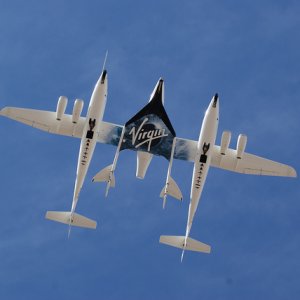The 4.0 Concept in the Aerospace Industry

STORY INLINE POST
In the information age, technology plays a very important role in aspects of everyday life, as it has made it possible to access information increasingly faster. This has produced a transformation in the way we consume and relate to data. The business environment is increasingly a participant in this constant technological evolution.
Industry 4.0 seeks to transform companies into intelligent organizations to achieve the best business results by combining advanced production and operations processes with technology. It provides us with more information almost instantaneously, which makes us more informed and demanding, making the decision-making process faster and more efficient.
The digital integration of information from different sources and locations allows business to be carried out in a continuous cycle of information flow and actions between the physical and digital worlds. This flow takes place through a series of iterative steps known as PDP, or Physical to Digital to Physical.
In this way, Industry 4.0 can improve business operations and revenue growth by achieving a transformation at various levels. This transformation can be observed in the business ecosystem, in organizations and in individuals.
Speaking about the business ecosystem, in addition to the change in which organizations operate and in the production of goods, Industry 4.0 affects all the agents of that ecosystem (suppliers, customers, investors), thus allowing interactions to be generated between each of the members of this network.
Regarding organizations, we can say that the ability to adjust and learn from data in real time can make organizations more responsive, proactive and predictive. It also enables organizations to reduce their productivity risks.
Undoubtedly, in the perception of individuals, Industry 4.0 can mean different things to everyone. For employees, it can mean a change in the work they are going to do, while for customers it means greater personalization in the products and services that best meet their needs.
Much has been said in different business forums about the momentum of the manufacturing sector in the aerospace field and how the effects of the pandemic have forced the different players to adapt and even modify their business strategies aimed at overcoming the difficulties that the pandemic introduced. Companies, government and academia — the triple propeller, as it were — had to work hand-in-hand to model various scenarios that would bring back manufacturing as an "essential" activity in the Mexican market.
With that same momentum, so-called "Industry 4.0" increasingly resonates in the field of business internationally, and I do not say only in manufacturing because this famous concept seems to already have unimaginable potential for universal and multisectoral applications. The Internet of Things (IoT), artificial intelligence, machine learning, robotics, automation — these are all concepts that go beyond the simple and daily use of computers and mobile devices. In fact, with these, we can already control "almost everything" and have information in real time.
The manufacturing and service industries are increasingly benefiting from the 4.0 concept to streamline their business processes, have immediate communication and increase the level of interaction aimed at segmented communities with massive impact; the digital evolution truly is "disruptive." Under a strategic plan, companies begin that evolution with the aim of increasing their presence and demonstrating their value offer in an impactful way through digital media. More and more companies, I believe, are convinced that this "digital evolution" is inescapable and necessary to guarantee the continuity of their businesses.
For the case that concerns us, a tremendous generation of data is available for the aerospace industry to generate its business plans around different initiatives. Where the primary focus is customer-oriented, in the case of airlines, this will result in optimizing flight routes that even help them optimize their forecasts of the demand for the service. This brings with it an analysis of segmentation of customers according to the wide variety of services they require, even in a personalized way.
Aligning with the trend of applying green technologies in terms of operability and already complying with very specific CO2 reduction initiatives, results in the efficiency of fuel consumption and the development and application of intelligent maintenance plans and programs, where MROs play a very important role in the business strategy of airlines. On the other hand, the measurement of results and the performance of the different programs implemented will continue to yield data that must be analyzed to continue with the decision-making process and carry out the necessary adjustments aimed at continuous improvement.
The need, due to the technological advances in the manufacture of aircrafts, to apply 4.0 tools in maintenance processes has led MROs to implement the so-called "digital MRO," a concept where the establishment and definition of maintenance programs consider four areas: technology, application, end user and region.
In summary, the aerospace industry in our country has shown considerable dynamism in the adoption of 4.0 tools, showing increasingly higher interest in implementing them to increase quality, productivity and competitiveness; in this way, our country has shown itself as a very important player in the global business ecosystem, where the manufacturing offer, the development of knowledge, research and MRO maintenance services grow in a sustainable way, making Mexico an attractive destination for investors in this industry.
























